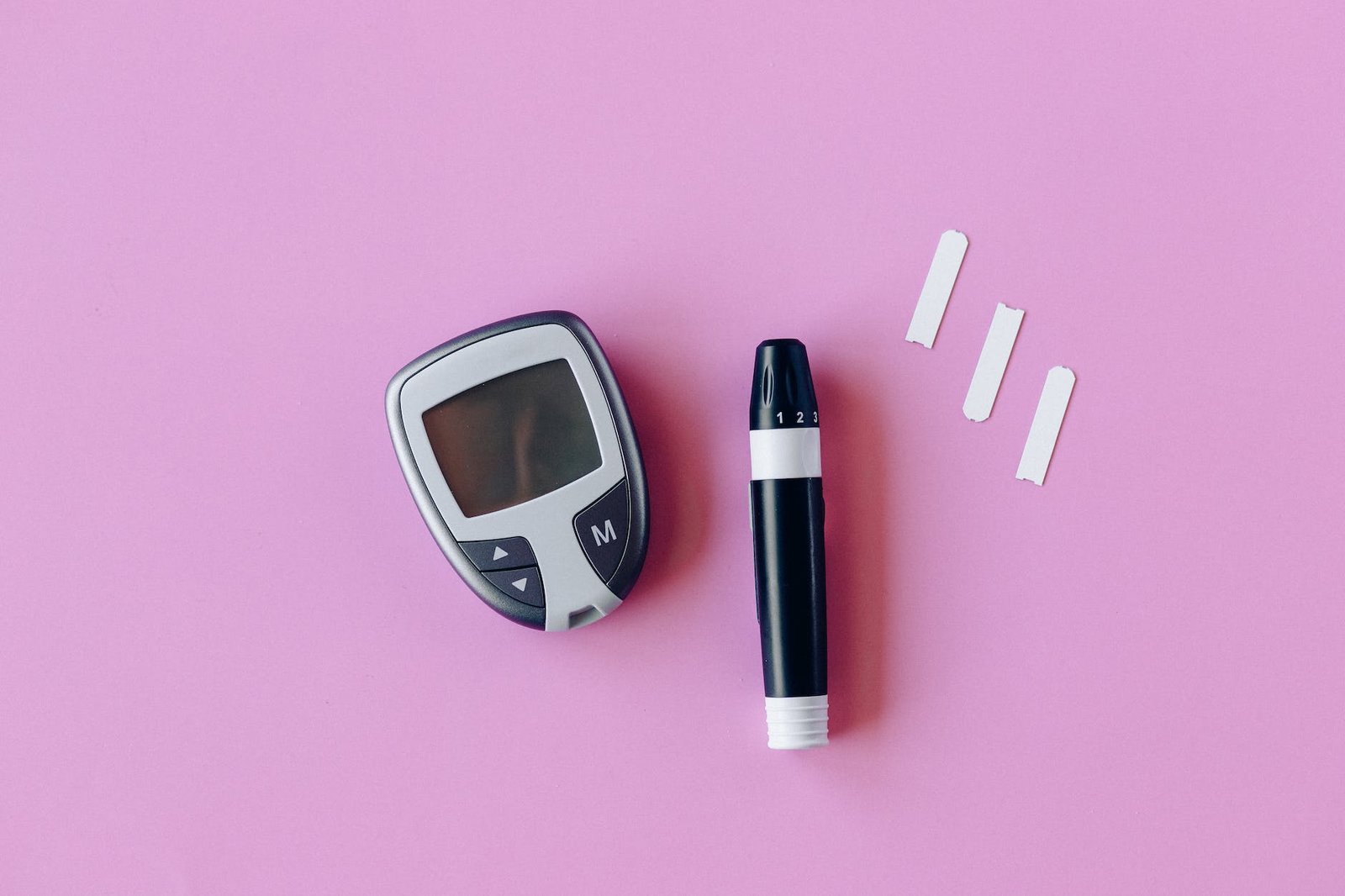
Understanding Blood Sugar Levels: A Comprehensive Guide

- Understanding Blood Sugar Levels: Your Guide to Managing Diabetes
- Understanding Blood Sugar Levels
- Monitoring Blood Sugar Levels
- Target Blood Sugar Levels for Adults
- Understanding Blood Sugar Levels After Eating
- Blood Sugar Levels and Diabetes Complications
- Lifestyle Factors and Blood Sugar Management
- Blood Sugar Levels and Special Considerations
- Frequently Asked Questions about Blood Sugar Levels
Understanding Blood Sugar Levels: Your Guide to Managing Diabetes
Understanding Blood Sugar Levels is essential for managing diabetes. This article provides a comprehensive overview of different blood sugar tests, target ranges for adults, and the impact of high blood sugar on overall health. Explore factors affecting blood sugar levels, tips for managing post-meal spikes, and preventive measures to reduce complications associated with diabetes. Learn about the importance of lifestyle factors such as diet, physical activity, and stress management in blood sugar control. Discover special considerations for pregnancy, children with diabetes, and older adults. Get answers to frequently asked questions about blood sugar levels and treatment options for managing diabetes.
Understanding Blood Sugar Levels
Welcome to the comprehensive guide on understanding blood sugar levels and their importance in managing diabetes. In this section, we will explore different aspects related to blood sugar levels, including types of diabetes, normal blood sugar levels, and key factors that affect blood sugar levels.
Types of Diabetes and Blood Sugar Levels
Diabetes is a chronic condition that impacts the body's ability to regulate blood sugar levels effectively. There are primarily three types of diabetes: type 1, type 2, and gestational diabetes. Each type has varying implications on blood sugar levels.
Type 1 diabetes is characterized by the inability of the pancreas to produce sufficient insulin, resulting in higher blood sugar levels. Type 2 diabetes occurs when the body becomes resistant to insulin or does not produce enough insulin. Gestational diabetes occurs during pregnancy and usually resolves after delivery.
Normal Blood Sugar Levels Chart
It is essential to understand what constitutes normal blood sugar levels for optimal health. Below is a chart outlining the recommended blood sugar ranges:
- Fasting Blood Sugar (before meals): 70-99 mg/dL
- Postprandial Blood Sugar (two hours after meals): Less than 140 mg/dL
- A1C Levels (average blood sugar over 2-3 months): Less than 5.7%
These ranges may vary slightly for individuals depending on factors such as age, overall health, and medical history. Consultation with a healthcare professional is crucial for accurate interpretation and guidance.
Key Factors Affecting Blood Sugar Levels
Several factors influence blood sugar levels throughout the day. It is essential to be aware of these factors and how they can affect your overall health and diabetes management. Some key factors include:
- Dietary choices and carbohydrate intake
- Physical activity levels
- Medication and insulin dosage
- Stress levels and emotional well-being
- Illness or infection
- Sleep patterns and quality
Visit our services page now!
Understanding these factors and their impact on blood sugar levels can help individuals make informed decisions regarding their lifestyle, medication, and overall diabetes management.
Monitoring Blood Sugar Levels
Regular blood sugar testing plays a crucial role in managing diabetes and maintaining good health. By monitoring blood sugar levels, individuals can make informed decisions about their diet, medication, and overall lifestyle. This section discusses the importance of regular blood sugar testing, the different types of blood sugar tests available, and how to interpret the results effectively.
Importance of Regular Blood Sugar Testing
Consistent monitoring of blood sugar levels allows individuals to track any fluctuations and understand how their body is responding to diet, exercise, and medication. It helps in identifying patterns, determining the effectiveness of the treatment plan, and making necessary adjustments to maintain optimal blood sugar control.
Different Types of Blood Sugar Tests
There are several types of blood sugar tests available to assess an individual's glucose levels. These tests include:
- Fasting Blood Sugar Test: This test measures blood sugar levels after an overnight fast to evaluate baseline levels.
- A1C Test: The A1C test provides an average blood sugar level reading over a period of two to three months. It is useful in determining long-term blood sugar control.
- Glucose Tolerance Test: This test involves consuming a glucose-rich liquid, and blood sugar levels are measured before and after to determine how the body processes glucose.
- Random Blood Sugar Test: This test is done at any time without fasting and provides an immediate evaluation of blood sugar levels.
Interpreting Blood Sugar Test Results
Interpreting blood sugar test results correctly is essential for understanding one's diabetes management. The results of each test can provide valuable insights into blood sugar control and may guide treatment decisions. It is important to consult with a healthcare professional who can explain the test results and help identify any necessary treatment adjustments to maintain optimal blood sugar levels.
Target Blood Sugar Levels for Adults
In order to effectively manage diabetes, it is crucial to understand the target blood sugar levels for adults. This section provides valuable information on ideal blood sugar ranges for overall health, specific blood sugar goals for managing diabetes, and the importance of adjusting medication or insulin dosage based on blood sugar levels.
Ideal Blood Sugar Ranges for Health
Maintaining blood sugar within specific ranges is essential for promoting overall health. The ideal blood sugar range for most adults, both fasting and before meals, is typically between 80 to 130 mg/dL (4.4 to 7.2 mmol/L). However, individual target ranges may vary based on factors such as age, overall health, and presence of any diabetes-related complications.
Blood Sugar Goals for Managing Diabetes
For individuals with diabetes, specific blood sugar goals are set to ensure optimal diabetes management and minimize the risk of complications. The American Diabetes Association (ADA) recommends target blood sugar levels before meals ranging from 80 to 130 mg/dL (4.4 to 7.2 mmol/L), and levels below 180 mg/dL (10 mmol/L) two hours after starting a meal.
Adjusting Medication or Insulin Dosage Based on Blood Sugar Levels
To maintain blood sugar within the target range, it may be necessary to adjust medication or insulin dosage. Regular blood sugar monitoring assists in determining the effectiveness of the prescribed treatment plan. If blood sugar levels consistently exceed the recommended range or fall outside the target goals, healthcare providers may suggest modifications in medication dosage or insulin administration schedules to achieve better blood sugar control.
Understanding Blood Sugar Levels After Eating
After eating, blood sugar levels can rise due to the breakdown of carbohydrates into glucose. Maintaining optimal blood sugar levels after meals is crucial, especially for individuals with diabetes. This section explores the impact of postprandial blood sugar levels on diabetes management, factors that contribute to post-meal blood sugar spikes, and effective strategies for managing blood sugar levels after eating.
Postprandial Blood Sugar Levels and Diabetes
Postprandial blood sugar levels refer to the amount of glucose in the bloodstream after consuming a meal. For individuals with diabetes, these levels can become elevated, leading to complications over time. It is essential to understand the significance of postprandial blood sugar control in effectively managing diabetes and minimizing the risk of complications.
Factors Affecting Post-Meal Blood Sugar Spikes
Several factors can influence post-meal blood sugar spikes. These include the types and amounts of carbohydrates consumed, the timing of insulin or medication administration, physical activity levels, and individual insulin sensitivity. Understanding these factors can help individuals make informed choices and take appropriate actions to manage their blood sugar levels effectively.
Tips for Managing Blood Sugar Levels After Eating
- Choose carbohydrates wisely: Opt for complex carbs with a lower glycemic index to minimize blood sugar spikes.
- Spread out carbohydrate intake: Distribute carbohydrate intake evenly throughout the day to prevent sudden spikes in blood sugar levels.
- Monitor portion sizes: Controlling portion sizes can help regulate blood sugar levels and prevent overconsumption of carbohydrates.
- Engage in physical activity: Incorporate regular exercise after meals to promote glucose uptake by muscles and improve blood sugar control.
- Consider medication adjustments: Consult with a healthcare professional about potential adjustments to diabetes medication or insulin dosage to better manage post-meal blood sugar fluctuations.
- Practice mindful eating: Pay attention to hunger cues and eat slowly to give your body ample time to process and regulate blood sugar levels effectively.
By implementing these tips and adopting a holistic approach to blood sugar management, individuals can better control their postprandial blood sugar levels, minimize complications, and improve overall diabetes management.
Blood Sugar Levels and Diabetes Complications
Impact of High Blood Sugar on Overall Health
High blood sugar levels can have a significant impact on your overall health. When blood sugar remains elevated for extended periods, it can lead to various complications throughout the body. Some of the potential health effects of uncontrolled high blood sugar include:
- Increased risk of heart disease and stroke
- Damage to blood vessels, kidneys, and nerves
- Impaired immune system function
- Higher susceptibility to infections
- Poor wound healing
- Vision problems and potential blindness
- Nerve damage causing pain, tingling, or numbness
Relationship Between Blood Sugar Control and Complications
Proper blood sugar control is crucial to prevent or minimize the development of diabetes-related complications. Consistently high blood sugar levels can contribute to the progression and severity of complications. Maintaining blood sugar within target ranges greatly reduces the risks associated with diabetes. By carefully managing blood sugar levels through lifestyle modifications and appropriate medication, individuals with diabetes can significantly reduce the likelihood of complications.
Preventive Measures to Reduce Diabetes Complications
To reduce the risk of diabetes complications, it's essential to take proactive preventive measures. These include:
- Following a healthy and balanced diet, low in unhealthy fats, sugar, and processed foods
- Engaging in regular physical activity, such as aerobic exercises and strength training
- Monitoring blood sugar levels regularly and adjusting medication as necessary
- Taking prescribed medications as directed by healthcare professionals
- Maintaining a healthy weight or striving to achieve a healthy weight
- Managing stress through relaxation techniques or engaging in stress-reducing activities
- Attending regular check-ups and screenings with healthcare providers
- Quitting smoking and avoiding excessive alcohol consumption
By implementing these preventive measures along with regular medical care and adherence to the treatment plan, individuals with diabetes can significantly reduce the risk and impact of complications associated with high blood sugar levels.
Lifestyle Factors and Blood Sugar Management
Lifestyle factors play a crucial role in managing blood sugar levels for individuals with diabetes. By incorporating healthy habits into daily routines, it is possible to achieve better blood sugar control and overall well-being.
Importance of Diet in Blood Sugar Control
The food we consume directly affects our blood sugar levels. A balanced diet that includes a variety of nutrient-rich foods is essential for managing blood sugar effectively. Here are some key dietary considerations:
- Focus on consuming carbohydrates from whole grains, fruits, vegetables, and legumes, as they provide sustained energy and fiber.
- Limit the intake of sugary and highly processed foods, as they can cause rapid spikes in blood sugar levels.
- Choose lean protein sources such as poultry, fish, beans, and tofu to help stabilize blood sugar levels.
- Incorporate healthy fats from sources like nuts, seeds, avocados, and olive oil for a well-rounded diet.
- Portion control plays a vital role in managing blood sugar. Monitoring portion sizes and practicing mindful eating can help maintain stable glucose levels.
Regular Physical Activity and Blood Sugar Regulation
Engaging in regular physical activity offers numerous benefits for blood sugar management. Exercise helps your body utilize glucose effectively, improve insulin sensitivity, and maintain a healthy weight. Here's how to incorporate physical activity into your routine:
- Aim for at least 150 minutes of moderate-intensity aerobic exercise, such as brisk walking, cycling, or swimming, every week.
- Incorporate strength training exercises two to three times per week to build muscle and enhance insulin sensitivity.
- Consult with a healthcare professional before starting a new exercise regimen, especially if you have any existing health conditions.
- Monitor your blood sugar levels before and after exercise to understand how physical activity impacts your glucose levels. Adjust your diabetes management plan accordingly.
- Stay hydrated during exercise and always carry a source of fast-acting carbohydrates in case of low blood sugar episodes.
Managing Stress and Its Effect on Blood Sugar Levels
Chronic stress can significantly impact blood sugar levels, as it triggers the release of stress hormones that can disrupt glucose regulation. It is crucial to find effective stress management techniques to maintain stable blood sugar levels. Consider the following strategies:
- Practice relaxation techniques such as deep breathing exercises, meditation, or yoga to reduce stress levels.
- Engage in activities that you enjoy, such as hobbies, spending time with loved ones, or engaging in creative outlets, to alleviate stress.
- Ensure you get enough sleep as lack of sleep can increase stress levels and negatively affect blood sugar control.
- Seek support from a healthcare professional or counselor if stress becomes overwhelming or impacts your daily life.
- Make self-care a priority by setting aside time for activities that promote mental well-being.
By implementing these lifestyle factors, individuals can take proactive steps towards managing their blood sugar levels effectively and reducing the risk of complications associated with diabetes.
Blood Sugar Levels and Special Considerations
When it comes to blood sugar levels, there are certain special considerations for different groups of people. Whether it's during pregnancy, for children with diabetes, or for older adults, understanding these unique circumstances is crucial for effective management.
Blood Sugar Monitoring During Pregnancy (Gestational Diabetes)
During pregnancy, women may experience changes in their blood sugar levels. Gestational diabetes is a condition that develops during pregnancy and requires special monitoring. Regular blood sugar testing is important to ensure the well-being of both the mother and the developing baby.
Expectant mothers with gestational diabetes are advised to monitor their blood sugar levels several times a day, usually before and after meals. Target blood sugar goals may be adjusted to minimize risks and promote a healthy pregnancy. Following a balanced diet, engaging in regular physical activity, and properly managing stress are essential for maintaining stable blood sugar levels during this crucial period.
Blood Sugar Levels in Children with Diabetes
Diabetes can also affect children, requiring special attention to their blood sugar levels. It is vital to ensure that children with diabetes maintain stable blood sugar levels to support their growth, development, and overall health.
Monitoring blood sugar levels in children involves regular testing, usually multiple times a day, with parental supervision and support. Parents play a critical role in overseeing their child's blood sugar management, which includes administering insulin as prescribed, following a healthy diet, and encouraging physical activity. Collaboration with healthcare professionals is essential to establish individualized blood sugar goals for children with diabetes.
Blood Sugar Goals for Older Adults with Diabetes
As individuals age, managing blood sugar levels becomes increasingly important to prevent complications associated with diabetes. Older adults with diabetes may have unique challenges, such as multiple health conditions or medication interactions, which can impact their blood sugar control.
For older adults, blood sugar goals may need to be individualized based on their overall health and ability to manage diabetes. Regular monitoring, following a balanced diet, engaging in appropriate physical activity, and adjusting medication as directed by healthcare professionals are crucial for maintaining optimal blood sugar levels. Regular communication with healthcare providers is paramount to address any concerns or changes in medication or treatment plans.
Understanding blood sugar levels in special circumstances like pregnancy, childhood, and older adulthood allows for tailored approaches to diabetes management. By closely monitoring blood sugar levels and following personalized care plans, individuals can minimize risks, promote better outcomes, and maintain overall well-being.
Frequently Asked Questions about Blood Sugar Levels
Common Queries on Blood Sugar Testing and Measurement
- How often should I test my blood sugar levels?
- What are the different methods for measuring blood sugar?
- Are home blood sugar testing kits reliable?
- What should I do if my blood sugar levels are consistently high or low?
- Can stress or illness affect blood sugar test results?
Understanding the Relationship Between Food and Blood Sugar
- How does food impact blood sugar levels?
- Which foods should I include in a diabetic-friendly diet?
- Are carbohydrates the main culprit for high blood sugar levels?
- Can portion control help regulate blood sugar?
- What role do proteins and fats play in blood sugar management?
Exploring Different Treatment Options for Managing Blood Sugar
- What are the common medications used to control blood sugar?
- Is insulin the only option for managing diabetes?
- Are there natural remedies or alternative therapies for blood sugar management?
- What lifestyle changes can help improve blood sugar control?
- Is weight loss beneficial for managing blood sugar levels?
In conclusion, understanding blood sugar levels is essential for effective diabetes management. This section provides answers to frequently asked questions regarding blood sugar testing, the relationship between food and blood sugar, and different treatment options. By educating yourself on these topics, you can take the necessary steps to control your blood sugar levels and lead a healthier life.









